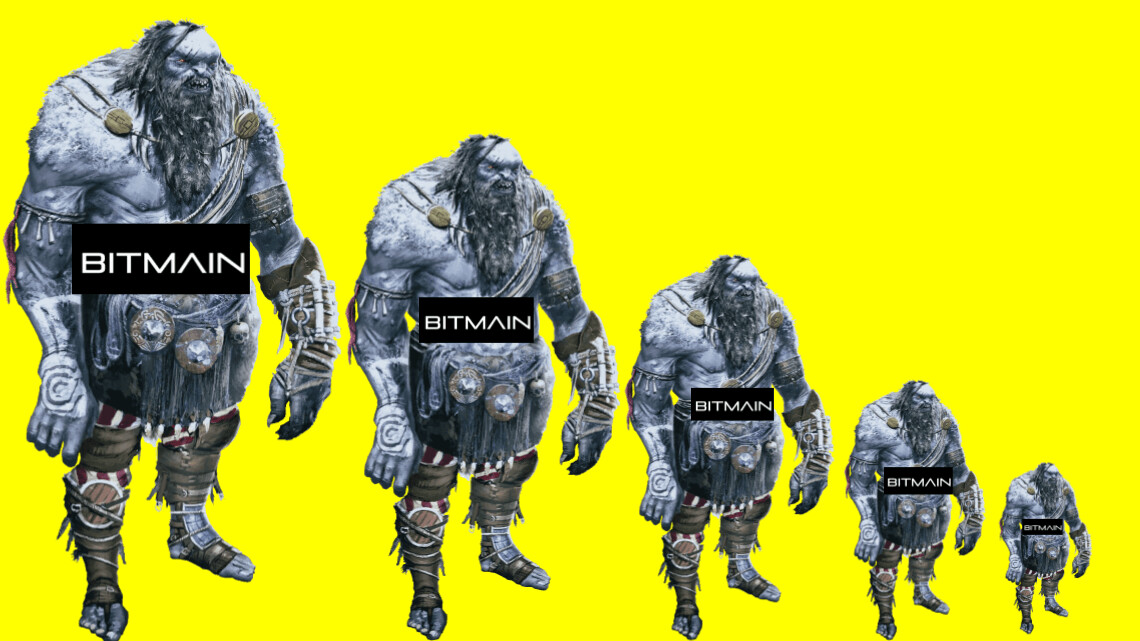
Bitmain, the China-based cryptocurrency mining behemoth, has acquired the status of a legend in the industry, with a ton of mystery surrounding its operations. The company is undoubtedly one of the most profitable cryptocurrency businesses in the world. But it seems, Bitmain is now slowly falling out of favor.
A report from investment research firm Sanford C. Bernstein & Co. suggests that Bitmain is losing its technological advantage over its competitors in producing the cryptocurrency mining chips. As per the analysts, while Bitmain still controls as much as 85 percent of the cryptocurrency mining equipment market, other companies such as Canaan Inc. and Ebang International Holdings Inc. are catching up.
“The Beijing-based company, co-founded by 32-year-old billionaire Jihan Wu, may need to write down the value of its inventory as makers of rival mining gear catch up,” the analysts said in the report. “Taiwan Semiconductor Manufacturing Co., which produces chips designed by Bitmain, should ask the company to make full prepayments and refrain from adding capacity solely for [cryptocurrency] related demand.”
It is worth noting that Bitmain makes majority of its profits from selling the mining equipment. The other minor sources of its revenue include mining cryptocurrency itself, the management fees it charges from its mining pools, and renting out mining power through cloud services.
However, if the Bernstein report’s claims are true, it would explain why Bitmain has been taking some drastic steps lately. Bitmain first struck controversy in March this year, when it sold its $12,000 mining equipment for Monero (XRM) and other privacy-oriented coins — knowing fully-well that the equipment will become obsolete by the time it actually ships.
Over the past year, Bitmain’s focus seems to have shifted from primarily focussing on selling the mining equipment to a more diversified portfolio. It has taken a particular interest in mining cryptocurrencies itself as well. The company announced a $500 million cryptocurrency mining farm in Texas earlier this month.
Bitmain has also invested heavily in blockchain-platform EOS, cryptocurrency payments company Circle, web-browser Opera, and even incubated a decentralized exchange DEx.top. In fact, according to the company’s CEO Jihan Wu, up to 40 percent of Bitmain’s profit over the next five years could be coming from selling AI chips instead of cryptocurrency mining equipment.
Considering that Bitmain was sternly focused on making mining equipment until very recently, it is certainly surprising that it is aiming for such diversity in a short span of time. Bitmain’s initial public offering (IPO) has also raised some concerns about its financial standing.
The much-anticipated IPO is expected to reach around $18 billion and investors seem to be taking notice. Reports surfaced earlier this month that Softbank Group and Tencent have participated in Bitmain’s pre-IPO. However, both companies have now denied any involvement with the IPO, raising doubt over the expected number of $18 billion for Bitmain’s IPO.
Bitmain’s financial liquidity was further challenged when its pre-IPO investment documents showed that the company holds a significant portion of its money in Bitcoin Cash (BCH), Bitcoin (BTC)’s controversial hard fork.
According to the Bitmain pre-IPO investor deck, they sold most of their #Bitcoin for #Bcash. At $900/BCH, they've bled half a billion in the last 3 months. If Bitcoin Core devs didn't disclose the Bcash vulnerability, it could've wiped a billion dollars off their balance sheets. pic.twitter.com/9BMywdvvby
— Samson Mow (@Excellion) August 11, 2018
Blockstream’s Chief Strategy Officer (CSO) Samson Mow points out that Bitmain bought the BCH at the price of of $900/BCH. If it now attempts to sell the BCH that it holds, that would significantly bring down the price of the cryptocurrency. Therefore, Bitmain’s investment isn’t exactly liquid.
Bitmain’s announcement of the IPO did come as a surprise, and has been surrounded in controversies. It seems likely that, as the Bernstein report shows, Bitmain is losing its monstrous control over the cryptocurrency mining business, forcing it to venture to other businesses.
Get the TNW newsletter
Get the most important tech news in your inbox each week.




